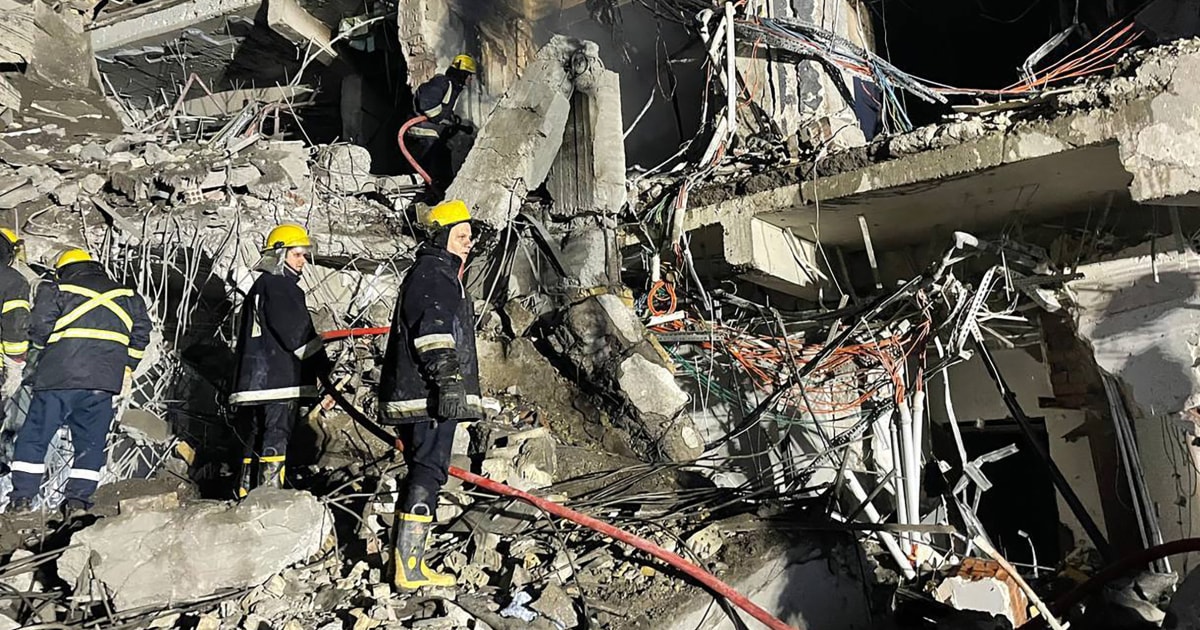The mother of one of the Palestinian American college students shot on the street near the University of Vermont has no doubt that the men were targeted and says the shooting should absolutely be treated as a hate crime.
Three men, all 20 years old, were shot in Burlington on Saturday. They all speak in Arabic and wear kaffiyehs, a symbol of Palestinian nationalism, although one was not wearing one during the shooting.
Tamara Tamimi told NBC News on Thursday that her son Kinnan Abdalhamid and his friends, Hisham Awartani and Tahseen Ali Ahmad, had been out in the neighborhood many times in the days leading up to the shooting. She said they were speaking Arabic and English before the attack.
“Kinnan started to think recently that perhaps the man had seen them before. He’s like, ‘It just doesn’t make any sense the way that he reacted.’ … It was a split second. But he looked at them, and then did a double take. And then he pulled out his pistol without any thought — without any words.”
“There is no doubt,” she said. “It just defies logic. Why else would it be? … If they were not wearing the kaffiyeh. … If they were not speaking Arabic.”
She said she would be disappointed if the violence were not treated as a hate crime. “It would be sorely disappointing only because the facts are so obvious,” Tamimi said.
Jason J. Eaton, 48, has been charged in the shooting and has pleaded not guilty to three counts of second-degree attempted murder.
Prosecutors are working to determine whether to treat the shootings as hate crimes.
An attorney for Eaton, Margaret Jansch, told NBC News earlier this week it would be “premature for us to speculate” on whether he could potentially be charged with a hate crime.
Vermont’s hate crimes statute can be applied if a crime is motivated “in whole or in part, by the victim’s actual or perceived protected category.” That includes race, color, religion, national origin, sex, ancestry, age, service in the U.S. Armed Forces or the National Guard and disability.
Prosecutors can seek increased penalties for hate crimes, including longer jail sentences and higher fines. A person cannot be convicted of a hate crime alone, but the charge would enhance penalties.
The students’ shooting comes as tensions across the U.S. and around the globe are on the rise following the Oct. 7 terror attacks on Israel and the subsequent counterattacks in Gaza. Islamaphobic and antisemitic rhetoric and incidents are on the rise.
The victims, who are longtime friends who graduated from the same school in the occupied West Bank and attend separate colleges in the U.S., told police they were walking near the University of Vermont campus when a white male they did not know emerged, pulled out a gun and opened fire.
Elizabeth Price told NBC News on Thursday that her son, Hisham Awartani, is paralyzed from the midtorso downward.
“He has what they call an incomplete spinal injury, which means that he can feel, but he can’t move the areas that are currently paralyzed,” Price said. “He is going into intensive rehab later this week, and we hope that that will help with his prognosis. … He’s resolute. He’s resilient.”
Price said the suspect dehumanized her son and his friends. She said “toxic rhetoric” against Palestinians most likely contributed to the suspect’s motive.
“He intended to take their lives because he thought they weren’t worthy of living,” she said.
Awartani and Abdalhamid are U.S. citizens, and Ali Ahmad is a legal U.S. resident.
Price also said the friends have been “frustrated” they’ve received so much attention and feel Palestinians in Gaza have been ignored and forgotten. He said of the thousands of people killed in Gaza, about 30 share his first name.
“I’m the Hisham you know,” Price recalled her son saying.
Awartani, a junior at Brown University in Rhode Island, was shot in the spine. Abdalhamid, a Haverford College student, was shot in the glute. Ali Ahmad, who was shot in the chest, is a student at Connecticut’s Trinity College.
Tamimi said her son is out of the hospital and doing well physically but struggling emotionally and having trouble eating and sleeping.











